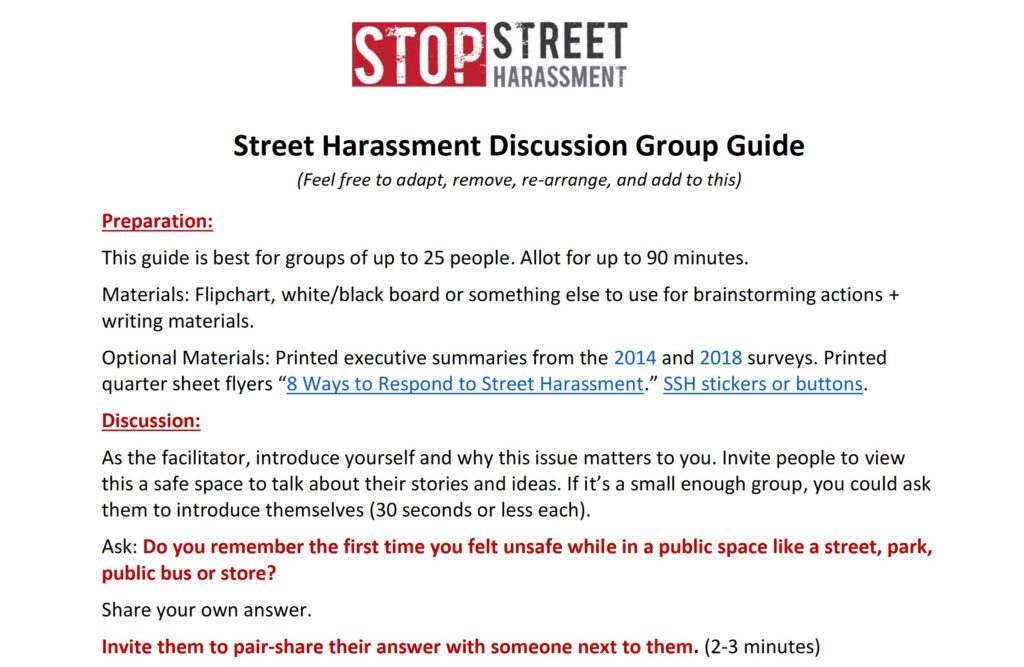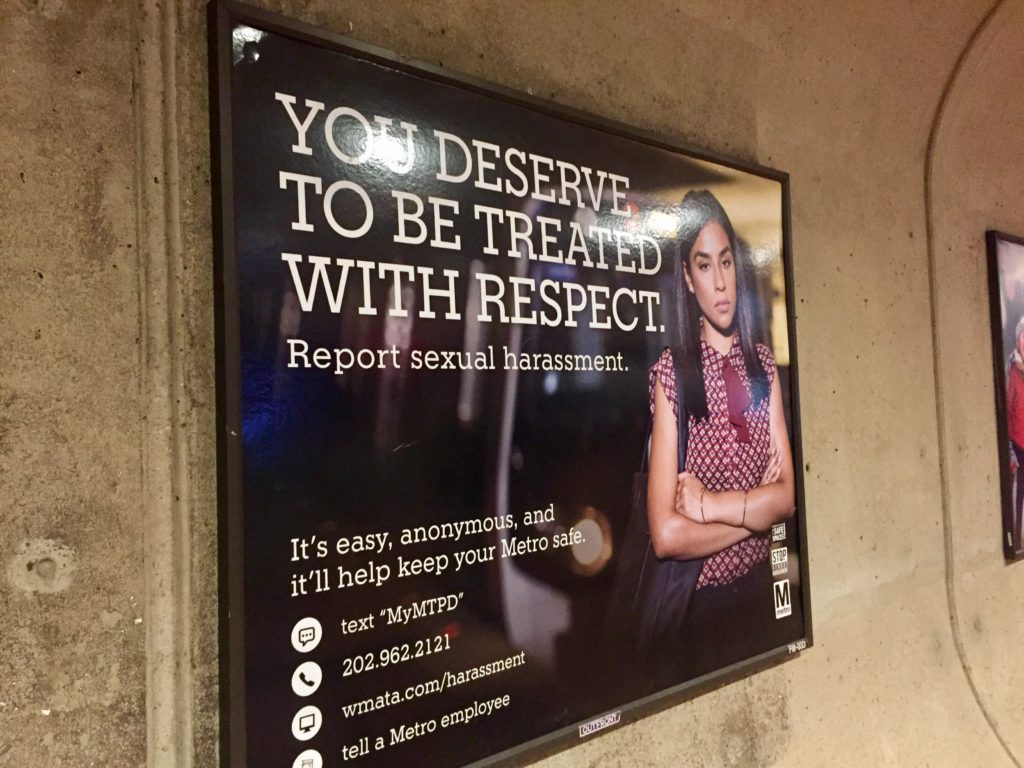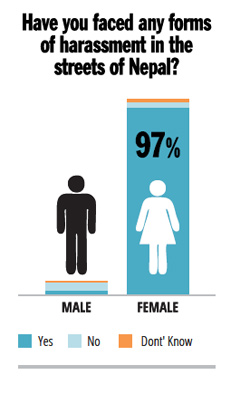Here are new resources we are releasing in time for International Anti-Street Harassment Week, but they also that can be used any time.
- If you’d like to conduct your own local survey on street harassment, you are welcome to adapt either our 2014 survey or our 2018 survey as you create your own.
 If you’d like to host a discussion group on street harassment, here is a four-page guide (Word | PDF), complete with material and resource suggestions. Feel free to adapt it or build onto it, too. It incorporates a few of the key findings from the 2014 and 2018 surveys.
If you’d like to host a discussion group on street harassment, here is a four-page guide (Word | PDF), complete with material and resource suggestions. Feel free to adapt it or build onto it, too. It incorporates a few of the key findings from the 2014 and 2018 surveys.






